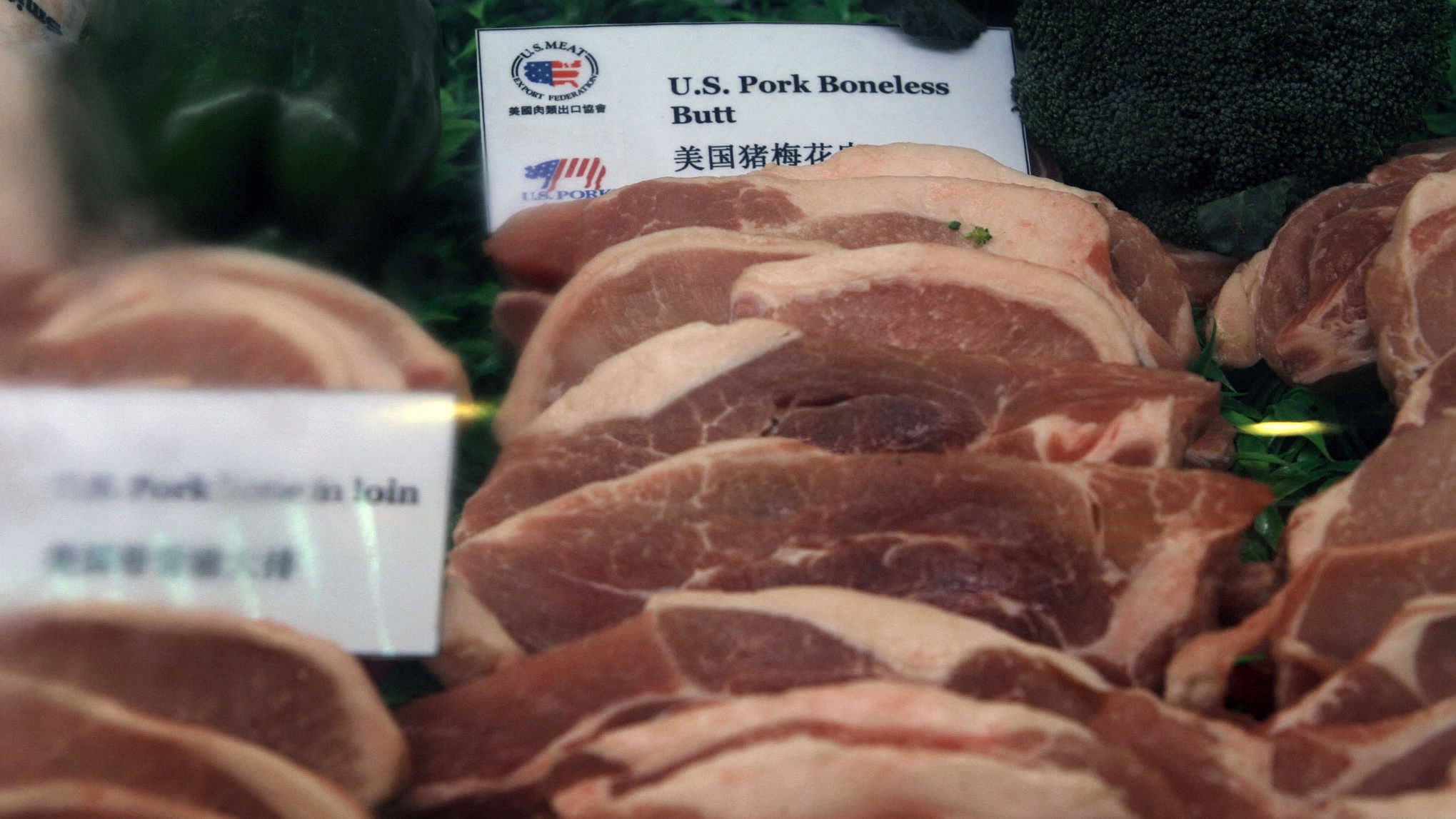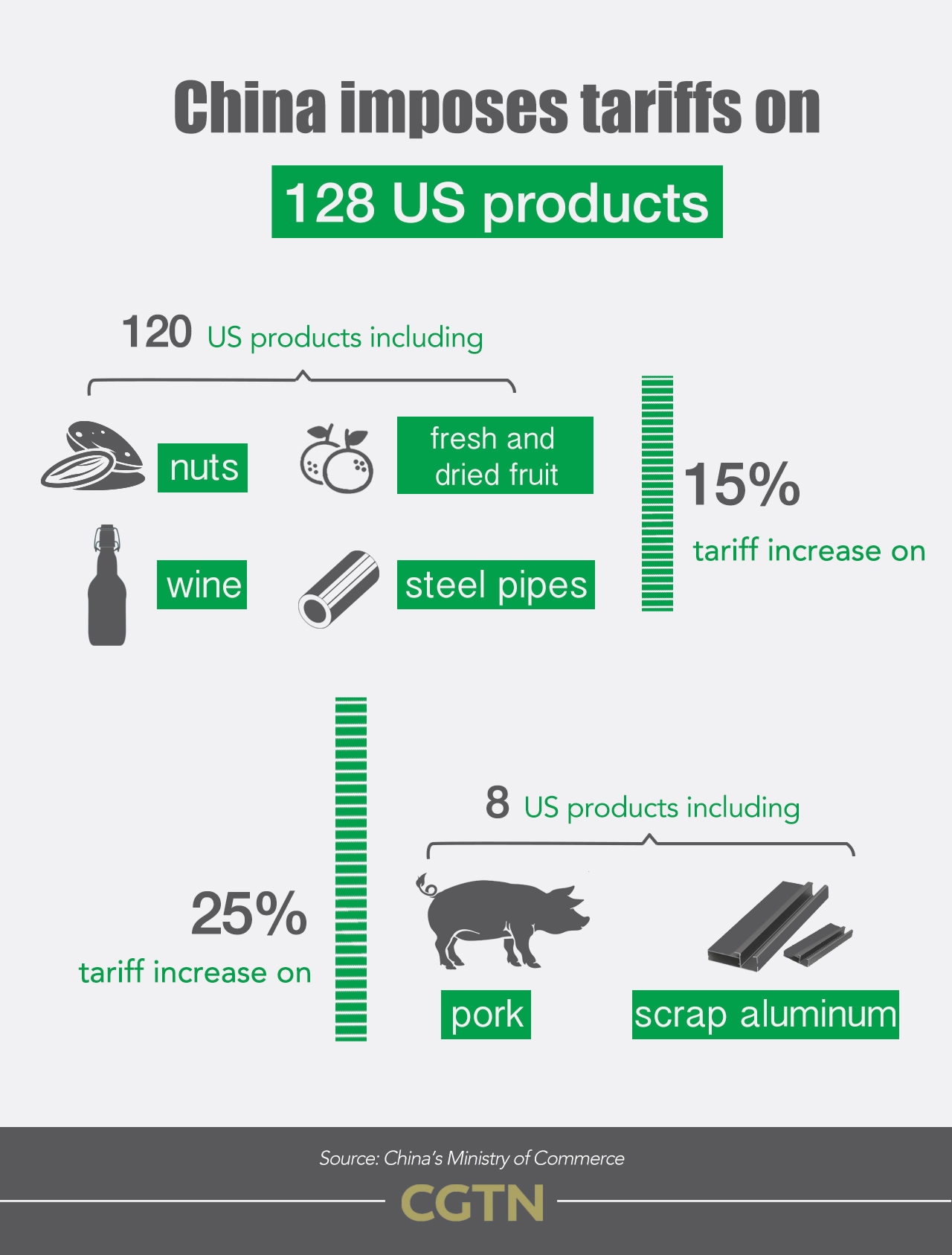
Business
07:35, 02-Apr-2018
China's trade retaliation falls into place, pressuring US to retract measures
CGTN

China has pushed through an earlier plan to impose tariffs estimated worth 3 billion US dollars on US goods as compensation for the Trump administration’s duties on imported steel and aluminum, while continuing efforts to discuss cooperation with the world’s largest economy.
The decision to tax 128 US imports comes into effect Monday. After first revealing plans to do so in late March, with full approval from the state council, levies on 120 products, ranging from nuts to steel piping, will increase by 15 percent, while an additional 25 percent levy will be imposed on eight products including pork and scrap aluminum, to counter the effects of the US extra duty, 25 percent on steel and 10 percent on aluminum.
Three days after the sweeping tariffs on steel and aluminum took effect, China attempted to hold trade talks with the US but was turned down, and proceeded with the planned tariffs, but only after notifying the WTO in advance, thus honoring China’s legitimate rights as a member.

CGTN Photo.
CGTN Photo.
Persistent in its stance in promoting stable and equitable trade relations, China’s commerce ministry again urged the US to retract protectionist measures that run contrary to free trade agreements and to resolve differences through dialogue and negotiation. Various ministries have reiterated that China has expressed strong disappointment and is prepared to stand its ground if a ‘trade war’ took place.
Falling into place after an 8-day opinion seeking period, the ministry stated that most of those who weighed in with views were in support of the plan to step up tariffs, and many even suggested rolling out more intense measures in retaliation.
Analysts say that China’s measured response of merely 3 billion US dollars seem to be targeted towards certain regions or states in the US, with citrus products and wines hitting the state of California hardest, while the ‘farm belt’ of deep-seated Republican states in the Midwest are expected to feel the worst pinch from a hike in pork tariffs.

CGTN Photo
CGTN Photo

SITEMAP
Copyright © 2018 CGTN. Beijing ICP prepared NO.16065310-3
Copyright © 2018 CGTN. Beijing ICP prepared NO.16065310-3